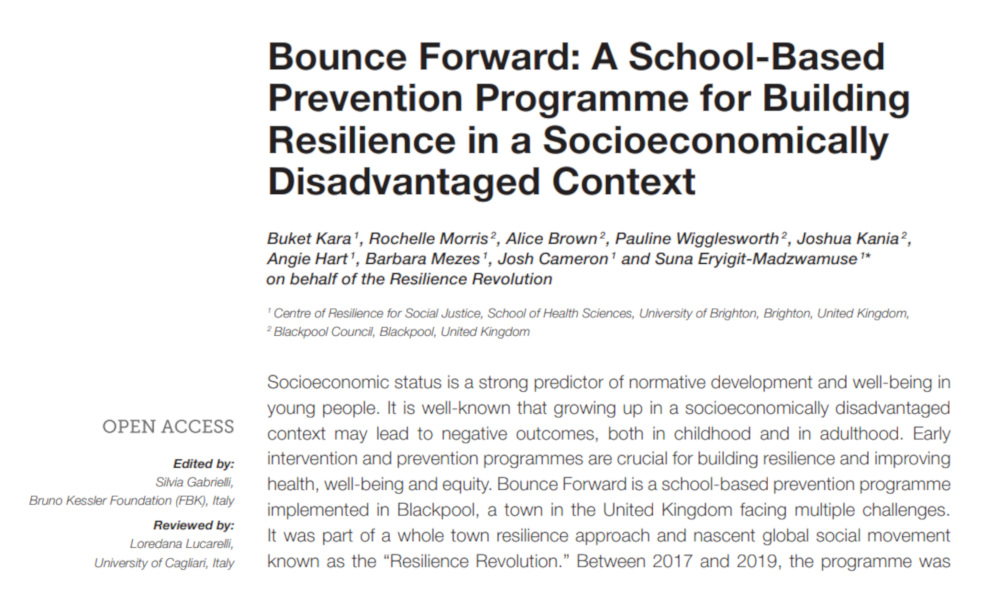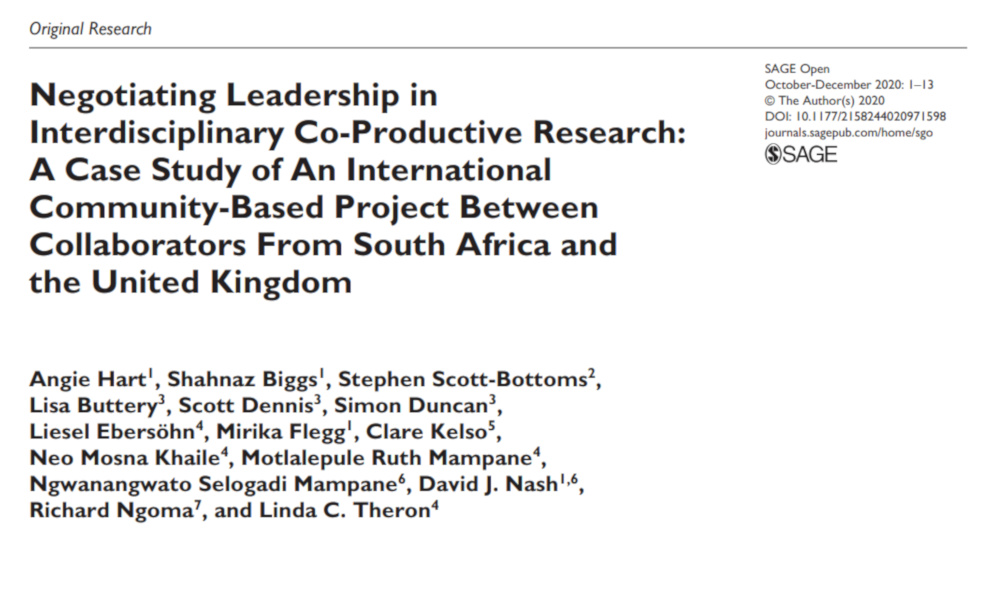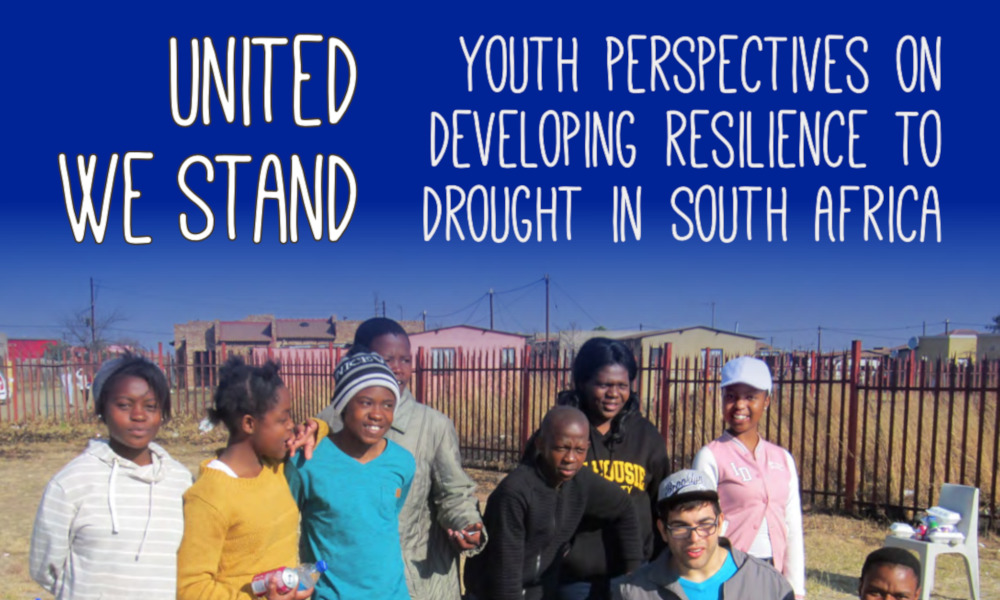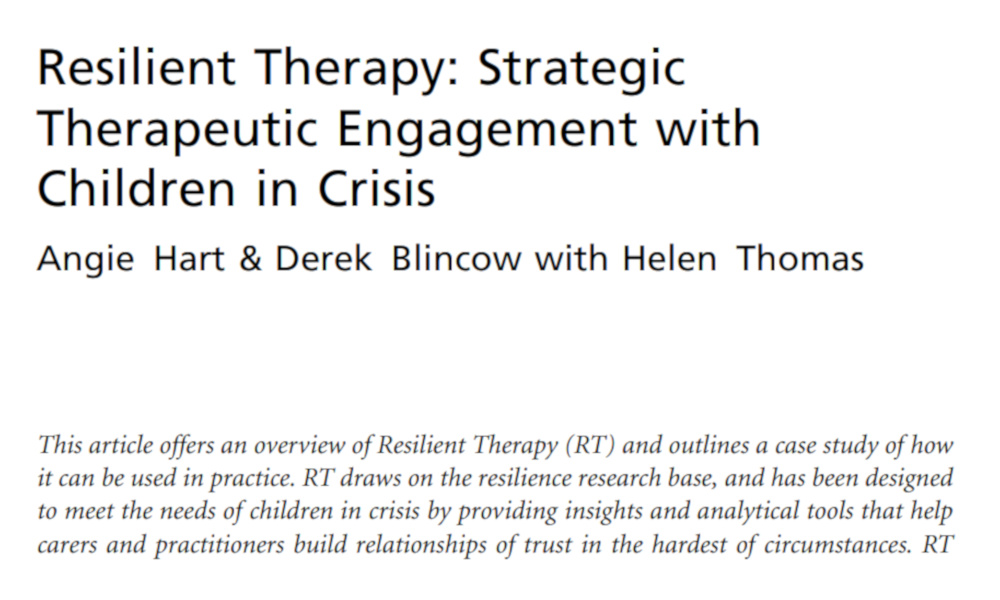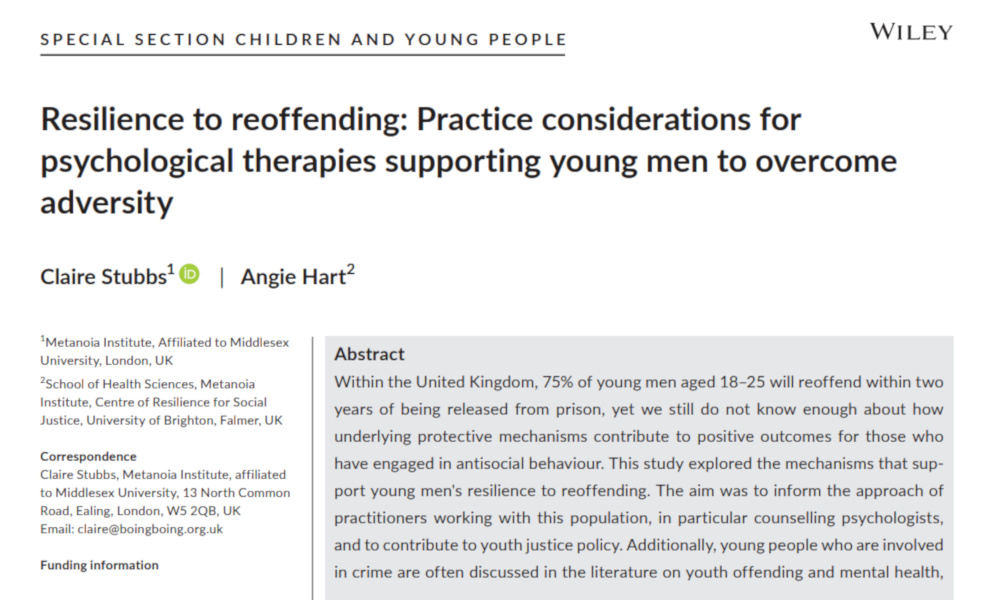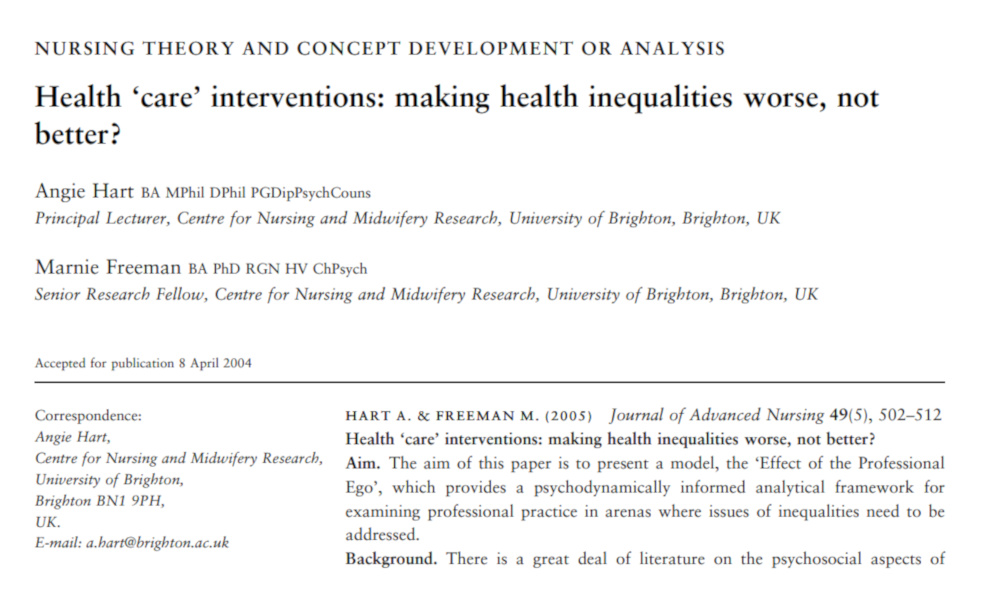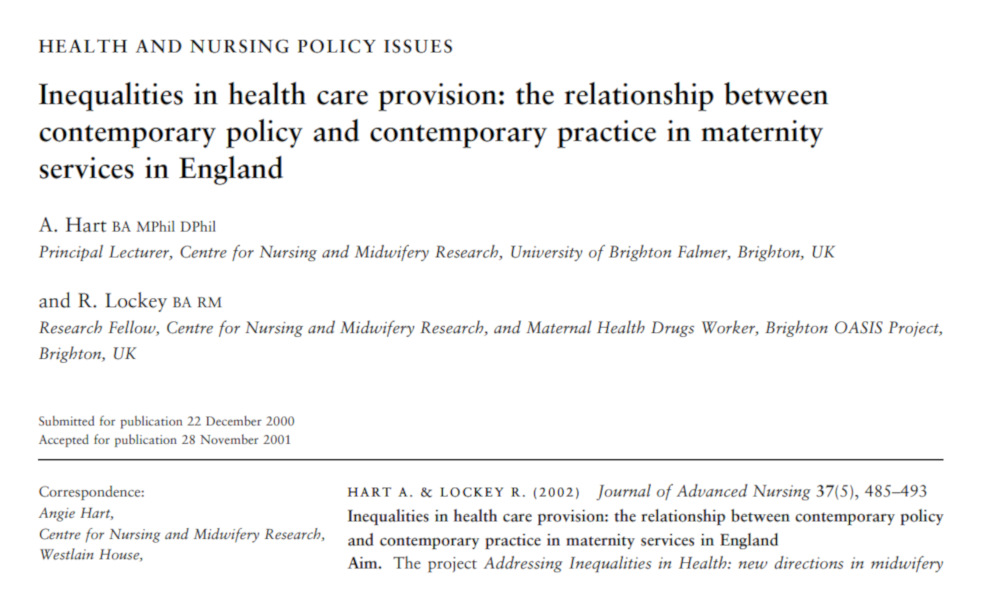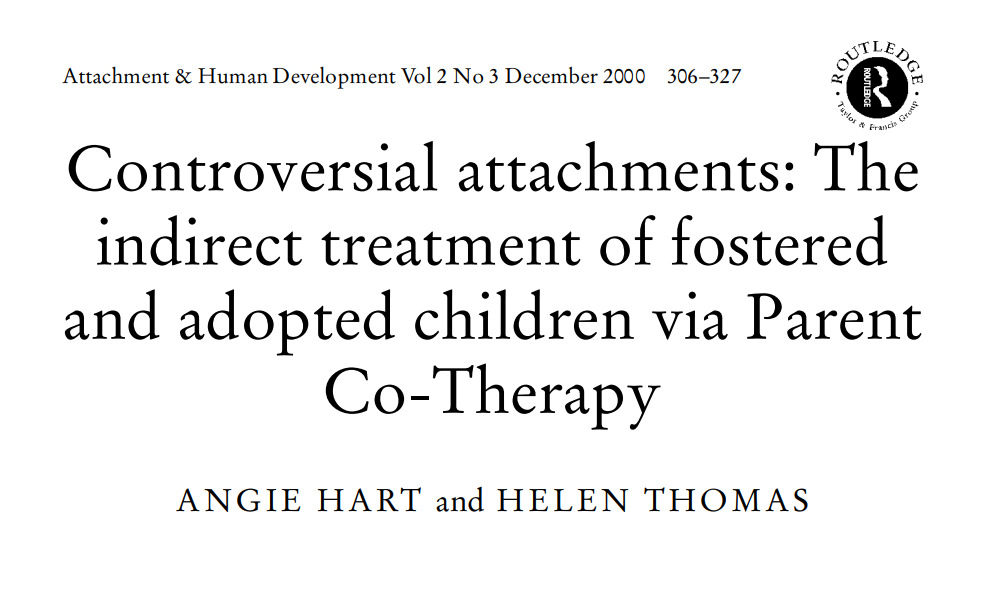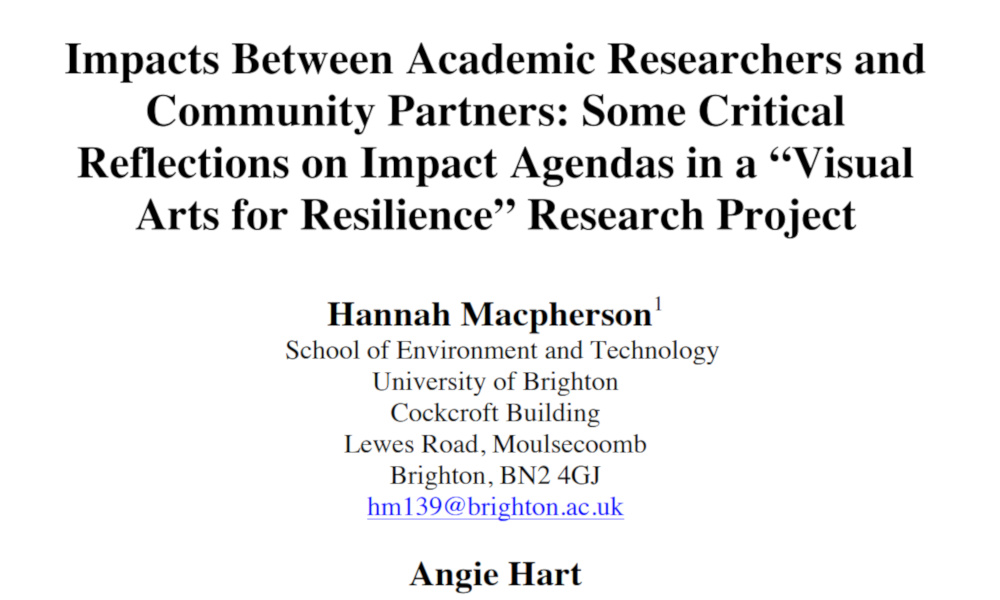In the current study, we longitudinally examined a range of protective factors, which are relevant to young people’s resilience, as well as their mental health outcomes at three time points: before they participated in Bounce Forward, at the end of the programme, and 3–5 months later, when they started Year 6.
 [email protected]
[email protected]
In the absence of empirical and conceptual considerations of the negotiation of leadership in teams doing community-based research, this article adds to the leadership literature by offering a critical reflection on positioning and collaborative teams in the context of one interdisciplinary, co-productive, cross-generational and international research project.
These issues have been identified as central to this project: * The general failure to implement existing drought policy in South Africa * The absence of youth in developing and implementing policy * The worsening effects of climate change and drought * Weak government and community responses to drought
This article offers an overview of Resilient Therapy (RT) and outlines a case study of how it can be used in practice. RT draws on the resilience research base, and has been designed to meet the needs of children in crisis by providing insights and analytical tools that help carers and practitioners build relationships of trust in the hardest of circumstances.
Within the United Kingdom, 75% of young men aged 18–25 will reoffend within two years of being released from prison, yet we still do not know enough about how underlying protective mechanisms contribute to positive outcomes for those who have engaged in antisocial behaviour. This study explored the mechanisms that support young men’s resilience to reoffending.
The project Addressing Inequalities in Health: new directions in midwifery education and practice (Hart et al. 2001) was commissioned by the English National Board for Nursing, Midwifery and Health Visiting (ENB). Here, we draw on those research findings to consider current midwifery policy and practice in England.
